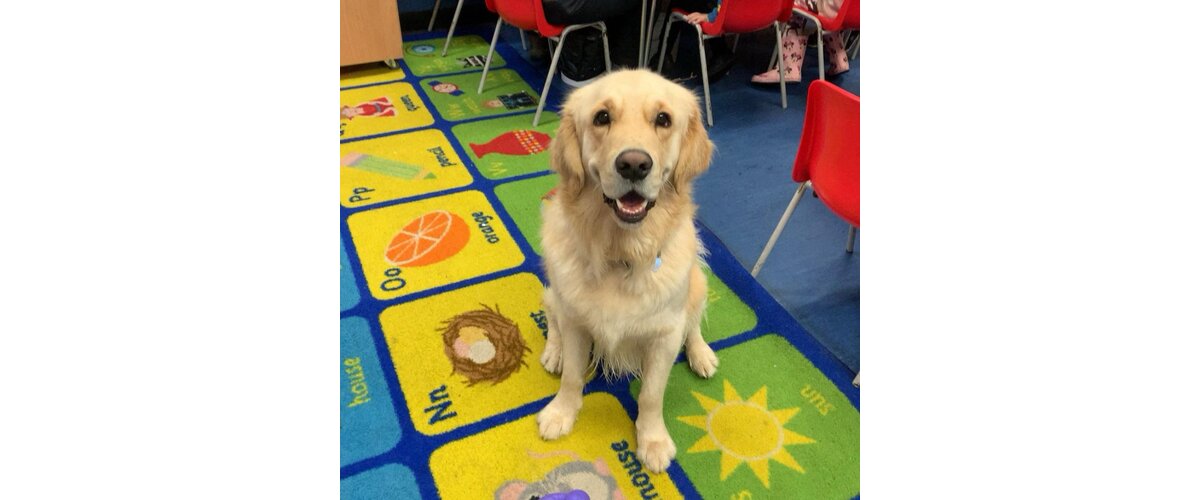Our Forest School Dog
Hello! My name is Woody and I work at St Nicholas C of E Primary School. I was born in February 2022 and I am a golden retriever. When I am not at work I live with Mrs Bartlett, our Forest School Leader, and her three other dogs.
I have now completed my Gold School Therapy Dog training.
I have my own hut in the Forest School at St Nicholas, and I love spending time with the children and staff while they are outside doing their activities.
What are the benefits of having a school dog?
Numerous research studies have shown the benefits of therapy dogs in schools, including:
- Cognitive - companionship with a dog stimulates memory, problem-solving and game-playing.
- Social - a dog provides a positive mutual topic for discussion, encourages responsibility, wellbeing and focused interaction with others.
- Emotional - a school dog improves self-esteem, acceptance from others and lifts mood, often provoking laughter and fun. Dogs can also teach compassion and respect for other living things as well as relieving anxiety.
- Physical - interaction with a furry friend reduces blood pressure, provides tactile stimulation, assists with pain management, gives motivation to move, walk and stimulates the senses.
- Environmental - a dog in a school increases the sense of a family environment, with all of the above benefits continuing long after the school day is over.
- Reading - reading to dogs has been proven to help children develop literacy skills and build confidence, through both the calming effect the dog's presence has on children as well as the fact that a dog will listen to children read without being judgemental or critical. This comforting environment helps to nurture children's enthusiasm for reading and provides them with the confidence to read aloud.
What if my child is allergic to dogs or is scared of them?
Woody will only be allowed in situations with pupils who voluntarily wish to work with him. He has a very thorough cleanliness and grooming regime, and his training helps him to be calm and gentle around children. Experience and research have shown that, with proper guidance and handling, children can learn to overcome their fear of animals and grow in respect and appreciation for them.
Does the school have a 'no dog policy' - except for guide/assistance dogs?
Schools must adhere to the Health and Safety at Work Act and the Management of Health and Safety at Work Regulations and so we have to assess the risks to our pupils, staff and visitors, and apply the relevant controls to mitigate those risks. The school is unable to assess the risk of animals brought onto site (apart from those pre-arranged for educational purposes) and therefore unable to perform its duty of care to ensure a safe environment. Therefore, dogs and/or other animals are not permitted on the premises at any time. The presence of our Forest School dog on site has been risk assessed and is continuously monitored in order to keep everyone safe.
If parents have any more questions or concerns at all about Woody, they are invited to speak to a member of school staff about them via the office.
.png)







